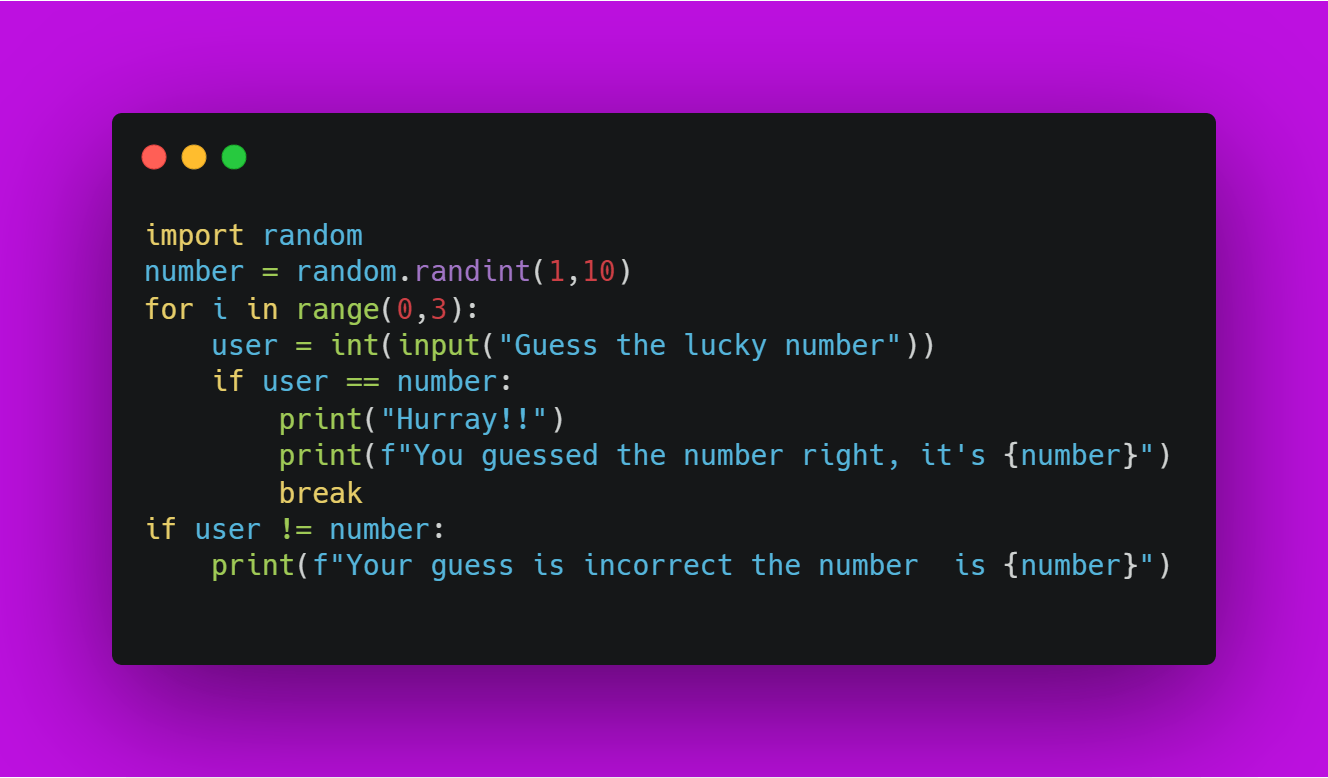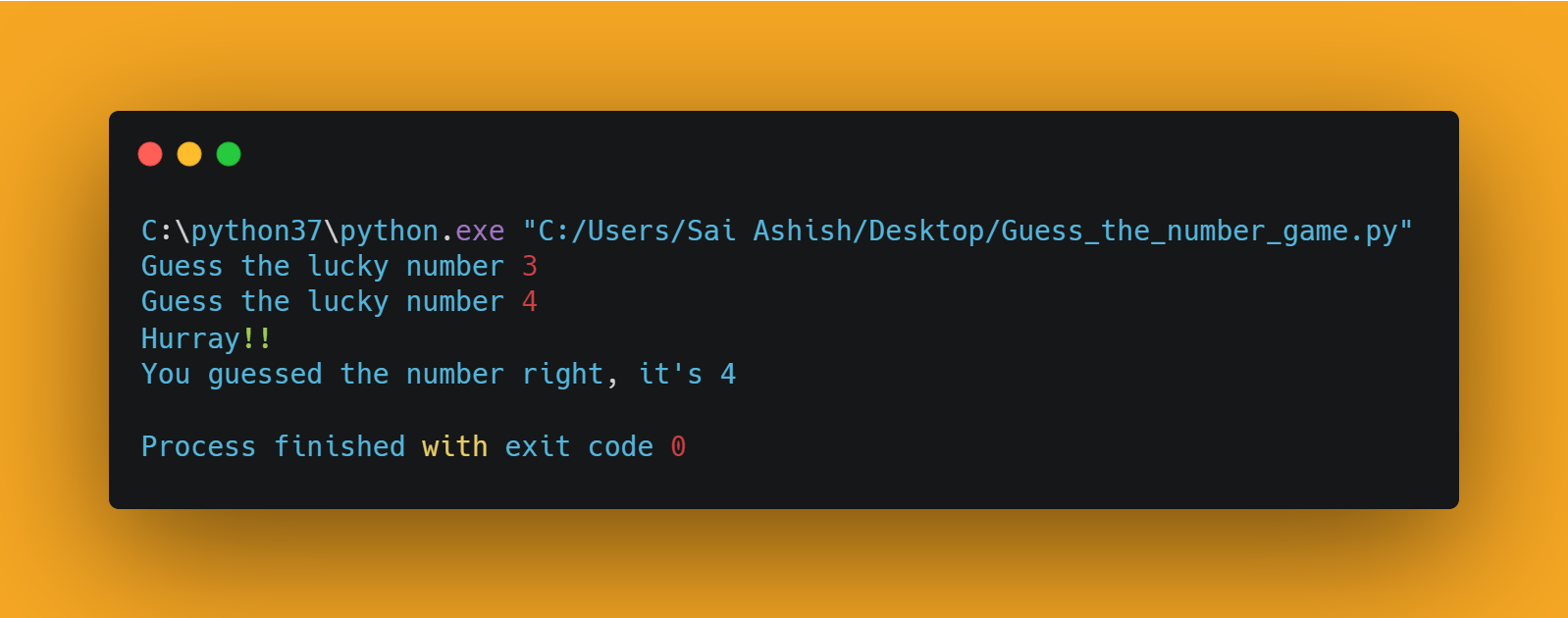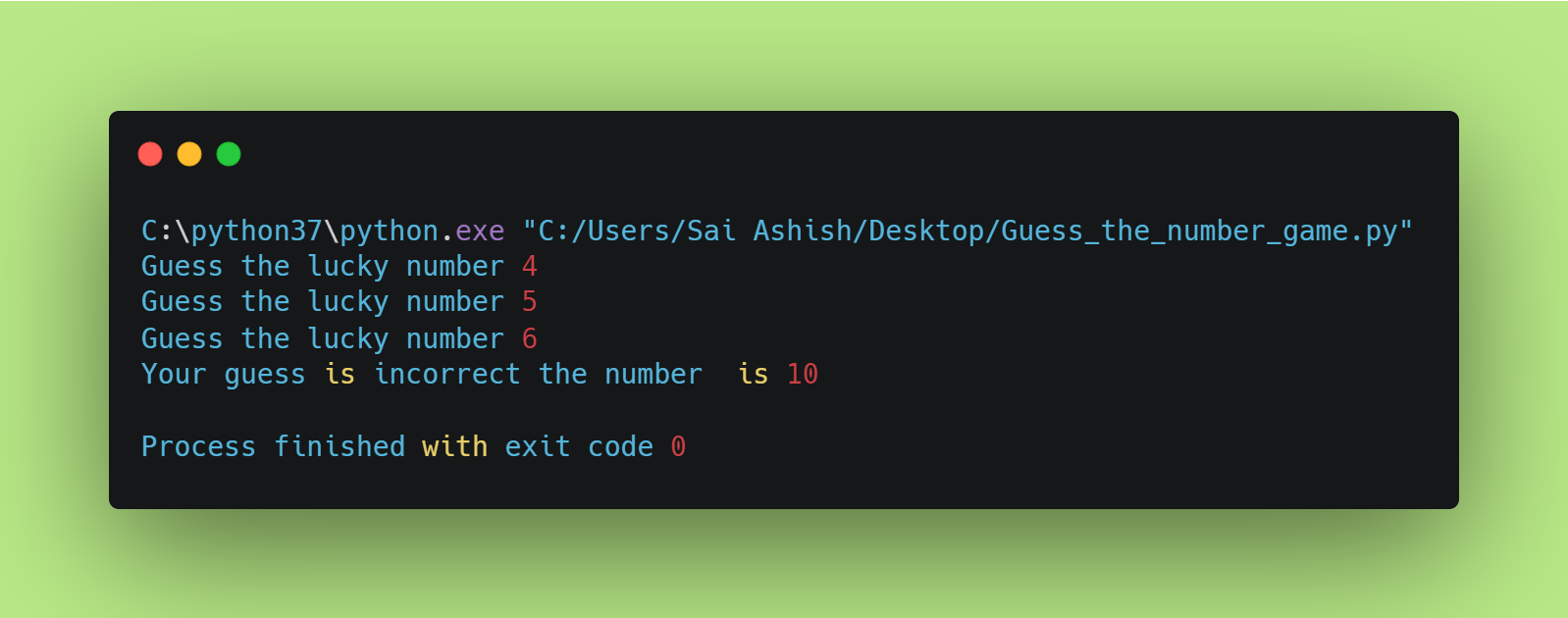Welcome to Python Projects for Beginners Series🙋🏻♂️
I'm Sai Ashish and today, we are going to build a simple Guessing Number Game using Python. You will be given 3 chances. All you have to do is guess a number between 1 to 10 (included) and if you guess the number correctly, you win 🏆
Simple enough? Let's get started?🚀
Through this project, you're going to learn about:
1. The Random Module
2. Basic concepts of Python: type casting, conditional statements,
iterative statements and string interpolation
3. Implementation of the guessing the number game with detailed explanation
You can access the basic Python concepts required for this build from here💣
Step 1: Modules Required:
To help us build this game, we are going to use an amazing module of Python called Random. The random module generates random numbers for us. This gets in real handy as we do not want our computer to be biased.
Step 2: Time to Code!

The first step is to import the random module:
import random
Now, we want the computer to choose a random number between 1 and 10. To set these limits, we make use of the randint() method of python.
Syntax of randint() is given as:
randint(lower limit , upper limit)
For Our Case:
number = random.randint(1,10)
Let's give the player 3 chances to guess the lucky number. To do that, we would require a loop that would repeat our game 3 times.
for i in range(0,3):
Inside our loop, we would like to ask the player for a number using the input() function. As python accepts string by default, we would convert the string into a number using function int(). The conversion of one data type into another is known as type casting or type conversion.
user = int(input("Guess the lucky number"))
Next, we would compare if the number guessed by the user equals the number generated by the computer. To compare, we use the 'if' statement and check for equality using the == operator.
if user == number:
If the number guessed is correct, we display "Hurray!!" using the print statement.
print("Hurray!!")
We would also like to display the lucky number. We would implement this concept using a mechanism called f-string or literal string interpolation.
Interpolation or interpolate means insert (something of a different nature) into something else. Here, we insert the value of the variables inside the statement of the string we are going to display.
#syntax for f-string or string interpolation
name = 'Ashish'
age = 20
print(f"Hello, My name is {name} and I'm {age} years old."
#output is generated as the value of variable replaced with contents of {}
Hello, My name is Ashish and I'm 20 years old.
In our game, we use interpolation as:
print(f"You guessed the number right, it's {number}")
Now, if the player has 3 unsuccessful attempts, the game gets over and the number is displayed on the screen as:
if user != number:
print(f"Your guess is incorrect, the number is {number}"
The Final Source Code Is Displayed Below:

The Output if You're Lucky Indeed😍

Well, Better Luck Next Time😢

There you go! You have now built your very own guessing game with just 10 lines of code👩🏻💻 As a gift for staying till now, you get access to my Python For Beginners Series Repository🎁 This repository contains all the source code you'd need to get started as a Python Developer 🐍
You can also download the source code to this project here. Do hit the twinkle star, if this article provided value to you 🔥
While the game looks simple and boring, it's actually very addictive😅 Want to take it even further? As a challenge, try building a GUI for your game🚀
And while you're at it, consider giving this blog the maximum love you can and I promise to give you such value bombs every week 💣 Until then, take care 🙋🏻♂️
Bonus Insights by The Insightful Coder :
Interested in Building Your Own Artificial Intelligence Projects using Python?: Check out the Python AI Series🧠
Wanna Discover Some Valuable Tech-Hacks 🛠?: Check out the Tech-Hacks for Everybody Series😎
I'm also dropping daily value bombs and development insights on my Instagram Page. Make sure to follow me up 💯
Find and Download All My Project Source Codes at My Github Repository 🎁

